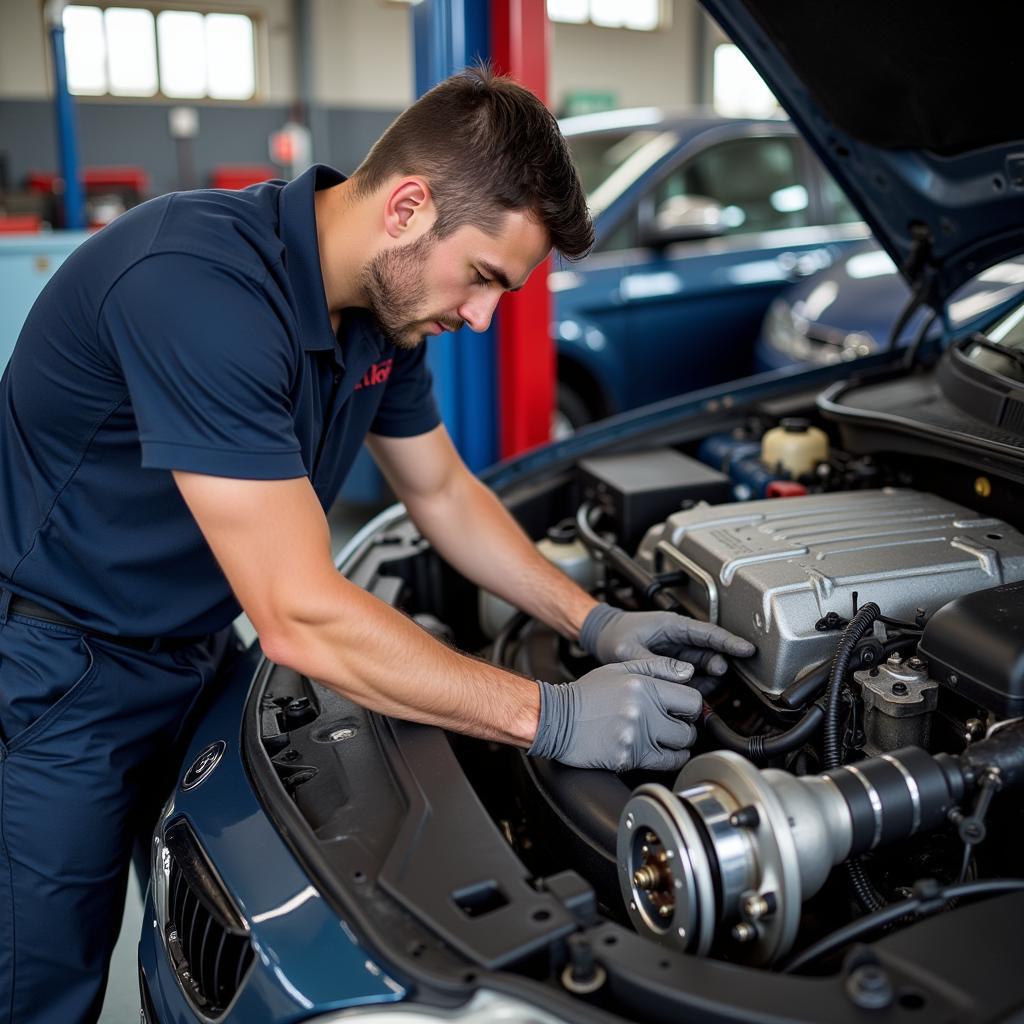Finding a reliable car that won’t leave you stranded on the side of the road or constantly visiting the mechanic is a top priority for most car buyers. This article will delve into the factors that contribute to car reliability, discuss which brands and models consistently perform well, and provide you with the knowledge you need to choose a car with the least problems and recalls.
Similar to problem cars by year and model, understanding the historical performance of certain makes and models can provide valuable insights.
Understanding Car Reliability
What does it mean for a car to be reliable? Reliability encompasses a vehicle’s ability to perform its intended function without experiencing mechanical failures, requiring frequent repairs, or being subject to numerous recalls. Several factors contribute to a car’s overall reliability:
- Manufacturing Quality: A well-built car, with tight tolerances and quality components, is less likely to experience problems.
- Engineering Design: Smart engineering choices, robust systems, and thorough testing are essential for long-term reliability.
- Maintenance: Regular maintenance, including oil changes, tire rotations, and other preventative measures, plays a crucial role in keeping a car running smoothly.
- Driving Habits: Aggressive driving, harsh braking, and neglecting routine maintenance can contribute to premature wear and tear.
Which Brands Consistently Rank High for Reliability?
Several automotive brands have established a reputation for building dependable vehicles. While no brand is entirely immune to issues, some consistently outperform others in reliability surveys and studies. These often include Japanese brands like Toyota, Honda, and Lexus, known for their durable engines and transmissions. Other brands, such as Mazda and Subaru, have also gained recognition for their reliability in recent years. Remember, even within reliable brands, specific models might perform better than others.
 Reliable Japanese Car Models
Reliable Japanese Car Models
How to Research a Specific Car’s Reliability
Before purchasing a used or new car, it’s crucial to do your research. Several resources can help you determine a specific car’s reliability history:
- Consumer Reports: This independent organization provides detailed reliability ratings based on surveys of its members.
- J.D. Power: J.D. Power conducts various automotive studies, including the Initial Quality Study (IQS) and Vehicle Dependability Study (VDS), which offer insights into car problems and reliability.
- NHTSA Recalls: The National Highway Traffic Safety Administration (NHTSA) website allows you to search for recalls by make, model, and year, giving you a clear picture of any safety-related issues.
- Online Forums and Reviews: Reading online forums and owner reviews can provide valuable firsthand accounts of car problems and reliability.
Just like ignition problem in car, recalls can significantly impact a vehicle’s reliability perception.
What are the Common Problems in Cars?
While different cars experience unique problems, some issues occur more frequently across various makes and models. These include:
- Transmission problems: These can range from slipping gears to complete transmission failure.
- Engine issues: Problems like misfires, oil leaks, and overheating can be costly to repair.
- Electrical system malfunctions: Modern cars rely heavily on electronics, and problems with the electrical system can be complex and difficult to diagnose.
- Brake problems: Issues with the braking system, such as worn brake pads or faulty calipers, can compromise safety.
- Suspension problems: Worn shocks and struts can affect ride comfort and handling.
Understanding the number if problem cars per hundred can provide a broader perspective on industry reliability trends.
 Common Car Issues: Engine, Transmission, Brakes
Common Car Issues: Engine, Transmission, Brakes
Choosing a Reliable Car: Key Considerations
Finding a car with minimal problems and recalls requires careful consideration. Here’s a checklist to guide your decision-making:
- Research Reliability Ratings: Check Consumer Reports, J.D. Power, and other sources for reliability data.
- Check for Recalls: Visit the NHTSA website to see if the specific car you’re considering has been subject to any recalls.
- Consider Certified Pre-Owned (CPO) Vehicles: CPO cars come with extended warranties and undergo thorough inspections, offering added peace of mind.
- Factor in Maintenance Costs: Some cars are more expensive to maintain than others. Research the typical maintenance costs for the car you’re considering.
- Read Owner Reviews: Online forums and review sites can provide valuable insights into real-world ownership experiences.
Looking for the best newer car to buy with the least problems involves balancing features, performance, and reliability.
Conclusion
Choosing a car with the least problems and recalls requires careful research and consideration. By understanding the factors that influence reliability, researching specific models, and using available resources, you can make an informed decision and find a dependable vehicle that will serve you well for years to come. For personalized assistance and expert advice, feel free to connect with us at AutoTipPro at +1 (641) 206-8880 or visit our office at 500 N St Mary’s St, San Antonio, TX 78205, United States.
Just like understanding common car paint problems, researching reliability is an essential part of car ownership.
FAQ
- What is the most reliable car brand? While several brands consistently rank high, it’s crucial to research specific models within each brand.
- How can I check for recalls on a specific car? Visit the NHTSA website and enter the car’s make, model, and year to search for recalls.
- Are certified pre-owned cars more reliable? CPO cars undergo inspections and come with extended warranties, offering greater peace of mind.
- How do driving habits affect car reliability? Aggressive driving and neglecting maintenance can lead to premature wear and tear.
- What are the most common car problems? Transmission, engine, electrical, brake, and suspension problems are among the most frequent issues.
- Where can I find reliable car reviews? Consumer Reports, J.D. Power, and online forums are good resources for car reviews.
- How often should I perform maintenance on my car? Consult your owner’s manual for the recommended maintenance schedule.





Leave a Reply